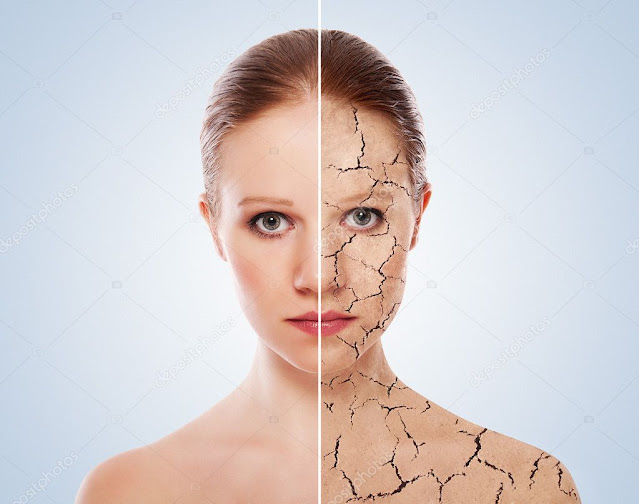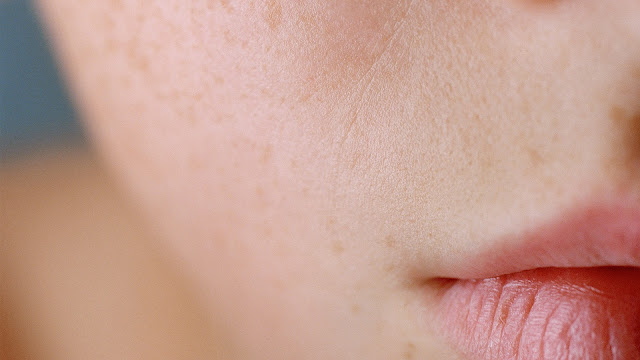Does your skin feel tight or dry, and does it appear dull? It could indicate dehydration.
What does it mean to "hydrate your skin"? If you've ever watched skin care commercials on TV, you've probably seen at least one pitch for a product that makes that claim. And why is it even important to keep our skin hydrated?
What Is Skin Hydration?
When you think of "hydration," it makes sense that you would visualize water. It makes sense that increasing your skin's water content will hydrate it. Dehydrated skin may look dry and lifeless.
Skin that is well-hydrated is soft, smooth, glowing, and tone-neutral. If you want your skin to be like this you have to take proper care of it and keep it hydrated and moisturized.
People frequently mistake dry skin for dehydrated skin, though. Despite being used interchangeably, there is a fundamental distinction between the two.
What Leads to Dehydrated Skin?
1. Very High Temperatures
Extremely cold or hot temperatures might harm your skin's protective natural barrier. While it could be difficult to escape extreme temperatures, ensure that you limit your exposure.
2. Excessive Exfoliation
The natural moisture barrier of your skin might be harmed by excessive exfoliation. If you exfoliate your skin with harsh, abrasive products, the damage could be greater.
3. Aggressive Cleansers
Skincare products with toxic, caustic components might affect your skin's ability to retain moisture.
4. Air Conditioning
Your skin's health may suffer as a result of air conditioners' reduced humidity. The skin becomes dry as a result of the moisture barrier being damaged by low humidity.
Dry Skin Vs. Dehydrated Skin
Skin that is dehydrated loses water, while dry skin lacks some sebum. Additionally, several drugs or medical conditions might cause dry skin.
Climate, way of life, age, and the skincare products you use are all variables that can alter your skin type.
1. The Signs Of Dry Skin
- Itchiness
- Redness
- Rough Skin
- Skin Sensitivity
2. Skin Dehydration Symptoms
- Dark Or Dull-Looking Skin
- Prominent Shadows And Dark Circles Around The Eyes
- Itchiness
- Appearance Of Wrinkles/Fine Lines
- Mouth Dryness
- Swollen Eyes
- Greater Sensitivity
Moisturization vs. Hydration
While moisturising your skin entails adding chemicals that keep the water inside, hydrating your skin calls for adding water to it. Hydration & moisturization go side by side.
Your skin could appear temporarily plumper if you merely apply water to it. If there is nothing to hold the water in place, it will therefore escape from your skin.
In order to hydrate, you must also include elements that rebuild your skin's barrier and seal in moisture. This stops water loss and enhances the health and texture of your skin.
10 Steps For Hydrating Your Skin
1. Make sure you're getting enough water
Hydrating your body comes before hydrating your skin. You should aim to consume at least eight glasses of water each day. Based on your daily activity and weight, your body can need more.
2. Use hydrating skincare items
If you have dehydrated skin, water-based products are advised. If your skin is dehydrated, you need products that can provide water to your skin.
3. Avoid Taking Long, Hot Showers
No doubt that it seems really strange, but it is true that long hot baths can destroy the protective covering of skin on the body. The loss of essential oils and moisture content may result in dehydrated skin. lukewarm water is the best choice to take a shower with.
4. Treat Yourself With Facial Masks and Sheets
Face masks contain lots of moisturising components. The addition of some hydrating face masks in regular skincare will keep your skin properly hydrated. It also lessens the dark circles and some wrinkles.
5. Employ a humidifier
When the air around you lacks moisture, a humidifier might be employed. This is particularly useful in the dry winter months.
6. You Must Wear Sunscreen
Every time you go outside during the day, protect your skin from UV rays by using broad-spectrum sunscreen. Your skin can get dehydrated from exposure to the sun, losing moisture and the collagen & elastin that give it strength and flexibility. This could result in early ageing symptoms.
7. Eat Water-Rich Foods
Vegetables and fruits are great for your skin in many more ways besides just hydrating it. Oranges and lemons, which are citrus-based fruits, are filled with juice and are high in Vitamin C, which is essential for maintaining the texture of your skin
The general health of your skin is improved and enhanced by foods rich in vitamins A & B3.
8. Reduce Your Caffeine Intake
Your skin's water level can be decreased by both caffeine and alcohol, which can result in tightness and dehydration. To lessen the negative effects on your skin, keep your caffeine consumption low.
9. Regular Exfoliation
Exfoliating is crucial for removing dead skin cells, dry patches, and other debris that have built up on your skin as a result of dehydration. Ensure that you exfoliate every 4-5 days.
Never over-exfoliate, though, since this can damage the skin's natural moisture barrier and cause moisture loss.
10. Moisturize
Your body is prone to losing a lot of moisture during the summer, so it's crucial to hydrate from the inside out. You must cleanse, moisturize and tone before bed.
In addition to this, such foods should be added to a diet that has high water content and hydrates properly. You may include honey and milk in your skincare routine because they are excellent natural moisturisers.
To have a look at my blog on Honey, CLICK HERE.
Final Thoughts
Hydration and moisturization are the two primary methods of skin nutrition. Hydrating your skin from the inside out is essential if you want to keep it healthy, young, and wrinkle-free. To experience hydrated, healthy skin all the time, add proper skincare practices, water-rich diets, and healthy lifestyle habits to your water intake.




